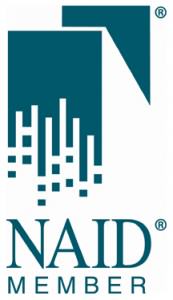
Do You Have Corporate Identity Theft Protection?
There are many types of corporate identity theft, but the most common is a cyberattack. This type of attack involves a hacker that is able to steal company information by hacking into a server or individual computer. Of course, this is done without the organization’s knowledge, in the same way data breaches affect consumers. Other types of theft include when physical company documents or records are stolen. It can happen either from within the business at the hands of an employee or even if paperwork is mishandled or improperly discarded.
Computers have provided businesses with numerous benefits. However, they have also made it easier for outsiders act against them than ever before. For proof, consider the fact that 66 percent of small and medium-sized businesses in the entire world experienced some kind of cyberattack in 2018,
As a result, companies need to put serious effort into protecting sensitive information because a cybersecurity breach can have such catastrophic consequences. One excellent example would be a disruption of the computer systems that make it possible for them to run their revenue-earning operations, which can be particularly painful if they don’t have either up-to-date back-ups or a well-practiced way to use those up-to-date back-ups. Another excellent example would be the theft of sensitive information that can be used to steal identities. Something that can cause outraged customers suing the corporation for compensation, thus resulting in legal fees and other losses. On top of that, consumers can be very sensitive to identify theft, meaning that such incidents will have a lasting effect on the corporation’s brand and thus the corporation’s marketing. Combined, it is no wonder that 60 percent of smaller companies go under within 6 months of them being hacked because they just don’t have the foundations needed to soak up such a hit.
How Can a Professional Destruction Service Prevent Corporate Identity Theft?
If confidential information falls into the wrong hands, your business could suffer immensely. The thief can impersonate you and others within your business to steal from the company. Whether it’s running up credit card bills, purchasing equipment, applying for business loans, or using information for their personal gain, corporate identity thieves show no mercy.
There are various measures that companies should implement to prevent identity theft as well as other cybersecurity issues. One would be the use of a professional destruction service to prevent potential leakage, which is much more important than what interested parties might imagine. After all, most cybersecurity breaches don’t happen because of some kind of super-criminal with incredible hacking skills. Instead, most cybersecurity breaches happen because human beings are prone to making mistakes from time to time, thus enabling opportunistic individuals to break into even the most secured systems. Thanks to this, it is very important for companies to make sure that the sensitive information on storage mediums that are no longer in use be destroyed by a secure destruction service.
As for what will happen in said process, the answer is very simple and straightforward. Document shredding will ensure that paper documents are destroyed beyond recovery by reducing them into such small pieces that they can’t be put back together. Meanwhile, hard drives are more resilient, which is why hard drive destruction is much more intensive in nature. Some companies might be tempted to just format a hard drive before overwriting it a few times. However, there are people out there who have claimed that this isn’t enough, which is why they should consider eliminating all doubts by having the hard drive physically destroyed by a secure destruction service with the tools needed to do so.
Regularly changing logins, passwords and other methods for accessing corporate bank accounts, credit cards and other important files can help prevent corporate identity theft. Company employees can sometimes be duped into logging into a fake website which matches the one they normally log into. After they log in, the hacker can easily steal information to get account numbers, trade secrets, proprietary formulas and more.
Phishing is another way that identity thieves will try. An employee may receive company emails that appear to be from a trusted source but contain fake links. Once these links are clicked upon, hackers can access to the company’s network. Phishing emails can also dupe employees into providing logins and other sensitive information.
Further Considerations
Any size company can be vulnerable to corporate identity theft, so it’s absolutely crucial to put safeguards in place that will protect your business. To ensure that your company does not fall prey to criminals, be sure to update safety procedures, train your team on how to spot phishing attempts and definitely implement a shredding policy and schedule.
You should be thorough in the protection of sensitive information by making sure that the storage mediums have been handled by a professional destruction service. In this manner, interested parties can ensure complete peace of mind for themselves.
IntelliShred has been awarded the highest security rating, “AAA Certified” by the National Association for Information Destruction (NAID). Contact us today on how we can help save your business from corporate identity theft.






